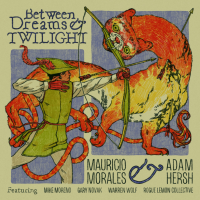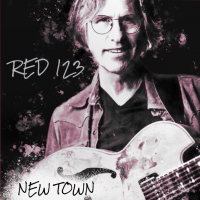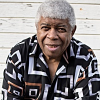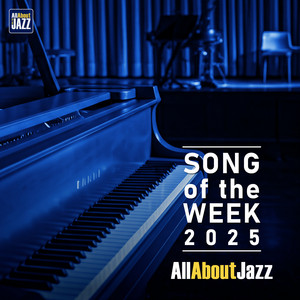Home » Jazz Articles » David Hazeltine
Jazz Articles about David Hazeltine
David Hazeltine: Manhattan Autumn

by Jack Bowers
It’s always a pleasure to review an album on which tenor saxophonist Eric Alexander is showcased, as I'm pretty sure beforehand that I’ll thoroughly enjoy it. That sense of happy anticipation is appreciably heightened when he’s in the company of such accomplished playmates as leader / pianist David Hazeltine, bassist Peter Washington and drummer Joe Farnsworth, who are among his partners as well in the exciting New York-based co-op sextet, One for All.
Manhattan Autumn is Hazeltine’s sixth album as ...
Continue ReadingDavid Hazeltine: The Classic Trio Meets Eric Alexander

by Jack Bowers
While this is his first meeting with the Classic Trio, tenor saxophonist Eric Alexander is no stranger to two of its members, having performed with pianist David Hazeltine in the New York-based co-op sextet One for All and with bassist Peter Washington on Alexander's recent albums, The First Milestone and The Second Milestone, among other dates. Needless to say, Alexander is quite comfortable alongside Hazeltine, Washington and the trio's third member, drummer Louis Hayes, smartly shaping and remodeling the Dexter ...
Continue ReadingDavid Hazeltine and the Classic Trio: The Classic Trio Meets Eric Alexander

by C. Michael Bailey
David Hazeltine, I presume...
One has to admit that it is a bit presumptive to name a jazz combo the “Classic Trio." There have been many “Classic" piano trios. The ones that quickly spring to mind are Oscar Peterson, Bill Evans, Ahmad Jamel, Ray Brown, Gene Harris, and the list continues. Pianist David Hazeltine has slapped this leaden moniker on himself and his rhythm section of bassist Peter Washington and drummer Louis Hayes. The moniker may not be too ...
Continue ReadingSteve Davis: Systems Blue

by David A. Orthmann
Indicative of formative experiences in the bands of Art Blakey and Jackie McLean, as well as his current association with the cooperative sextet One For All, Steve Davis’ Systems Blue encompasses many of the characteristics of bop and hard bop without sounding stalled in a bygone era. On his fifth date for the Criss Cross label, the trombonist and prolific composer favors selections from the American Popular Songbook. While he frequently alters the forms and harmonic designs in engaging ways, ...
Continue ReadingDavid Hazeltine: The Classic Trio Meets Eric Alexander

by Jim Santella
Audio samples from this mainstream quartet recording are available at David Hazeltine's web site . Straight ahead and always keeping the tradition alive, the pianist's trio complements Eric Alexander and adds sparkling interlude passages of its own. A healthy mix of originals and popular songs gives the session variety. Remember Jimmy Webb's “Didn't We"? Who can forget the lovely ballad that anchored most nightclub sessions some time ago? Hazeltine and Alexander interpret the classic song within the tradition, but with ...
Continue ReadingDavid Hazeltine: The Classic Trio Meets Eric Alexander

by C. Andrew Hovan
Honing his skills to such a degree that it all sounds deceptively easy, David Hazeltine’s art is always in danger of being misunderstood because it’s not radically too far to the left or right. In other words, he’s a mainstream player working within the tradition. But you know it seems that these days you have to be weird or young to get any press, so Hazeltine often gets lost in the shuffle. And that’s a shame because if hard bop ...
Continue ReadingDavid Hazeltine: The Classic Trio Meets Eric Alexander

by David A. Orthmann
One of the pleasures of keeping up with the ever-growing number of recordings featuring David Hazeltine is savoring his connection to a select circle of peers. The pianist thrives in the company of strong, assertive individuals who stretch the bebop-rooted, straight-ahead tradition without breaking the mold. Three of Hazeltine's most important alliances are with drummer Louis Hayes, bassist Peter Washington, and tenor saxophonist Eric Alexander. As a sideman for several years in Hayes' working quintet, he developed an extraordinary rapport ...
Continue Reading




















